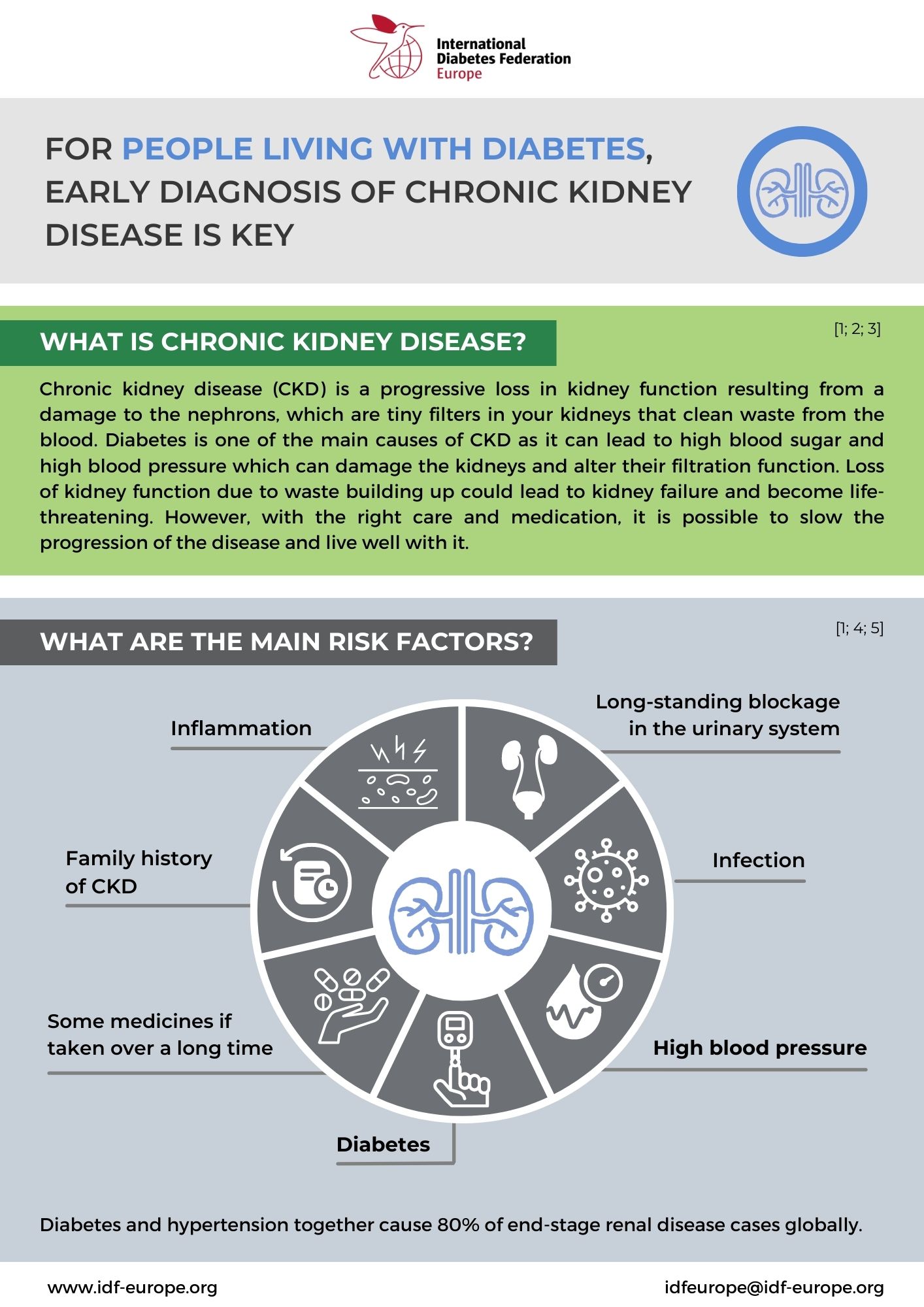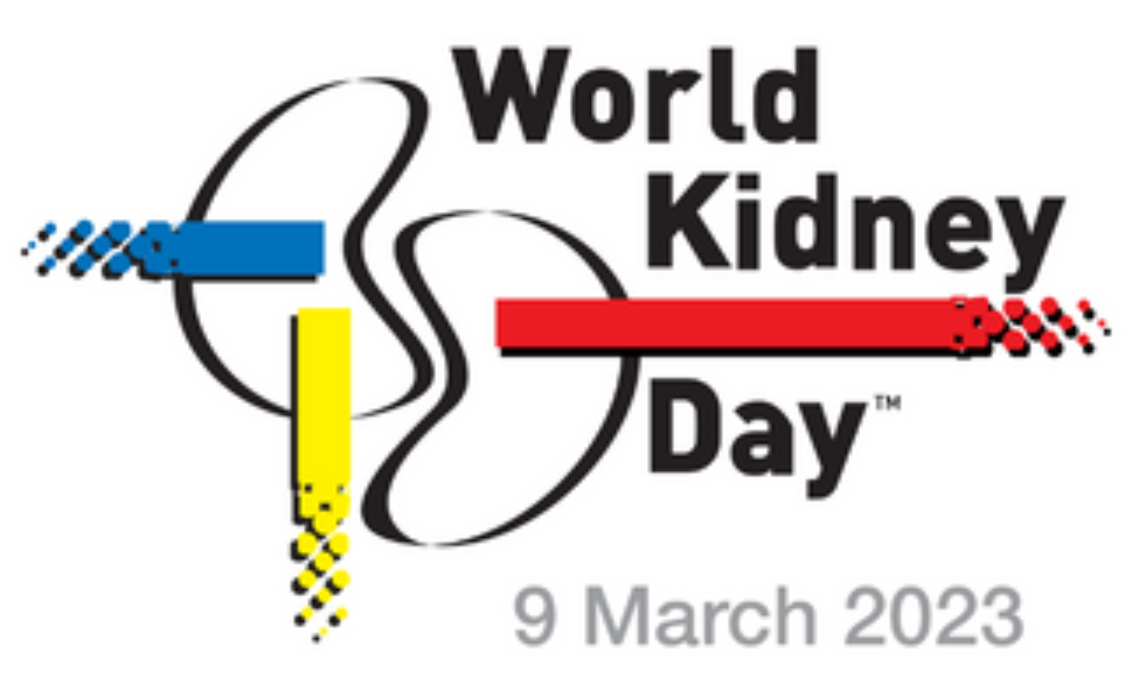Today, March 9, marks World Kidney Day 2023. This year, the theme is “Kidney Health for all – preparing for the unexpected, supporting the vulnerable” and it aims at raising awareness of the need for ensuring adequate access to prevention, diagnosis, care and treatment for all people living with chronic kidney disease (CKD) during emergencies.
CKD consist in a progressive loss in kidney function that negatively affects one’s health and quality of life and can lead to kidney failure. Globally, approximately 850 million people live with CKD [i] and about 1 in 10 people in Europe live with the condition [ii]. CKD is much more common in people living with diabetes (PwD) than in those without diabetes [iii]. It is estimated that 1 in 3 PwD develop CKD in their lifetime [iv].
CKD and diabetes are both complex conditions that requires uninterrupted access to treatment and care in order to be optimally managed and to prevent the development of life-altering complications. Given the high prevalence of these conditions, during emergencies such as earthquakes, wars and pandemics, a high number of people living with CKD and diabetes is inevitably affected by disruptions in access to health services, medical supplies, food and drinks.
Ensuring access to prevention programme and diagnostic services for people at risk of developing CKD and diabetes is crucial during emergencies. CKD usually progresses silently. People living with the condition can lose up to 90% of their kidney function before experiencing any symptoms [ii; v]. Nonetheless, if diagnosed early, CKD can be treated effectively, and the deterioration of kidney function can be slowed down or even stopped [ii; vi; vii].
In the event of emergencies, it is also crucial to ensure access to treatment and care for those already living with the condition. Although CKD has no cure, early treatment, which ranges from dietary changes and medication to renal replacement therapies, can slow down or stop the progression of CKD as well as prevent the development of complications [ii; vii; viii]. Disruptions in access to healthy food, drinks, medicines as well as healthcare facilities and services for the treatment of CKD, can cause loss of life or the development of life-altering complications.
Preparing for unexpected events is thus crucial to ensure that people living with NCDs such as CKD and diabetes have access to the health services and supplies they need for the optimal management of their condition and for preventing the development of complications which will alter their quality of life.
Policymakers, healthcare services, governments and people living with NCDs can all play a role in preparing for emergencies:
- Policymakers need to adopt integrated health strategies that prioritise prevention, early detection, and management of NCDs, including CKD.
- Healthcare services should provide equitable and proper access to care for people living with NCDs such as diabetes and CKD in times of emergency.
- Governments should include emergency preparedness plans in the prevention, detection and management of NCDs.
- People living with NCDs should plan for emergencies by preparing emergency kits and by following emergency guidelines.
Click here or on the image below to download the factsheet and learn more about CKD and diabetes.
 |



